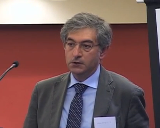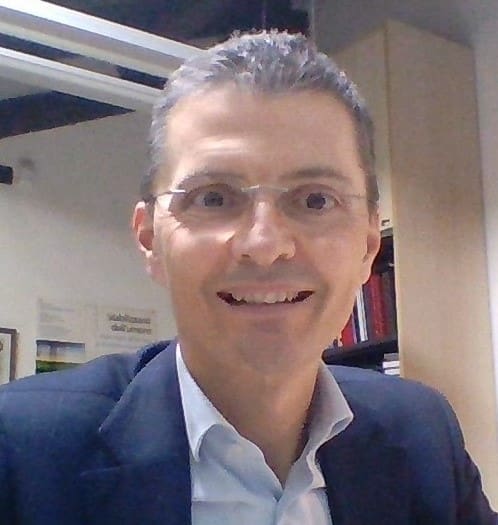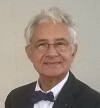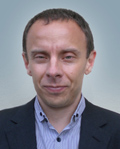Studying at the University of Verona
Here you can find information on the organisational aspects of the Programme, lecture timetables, learning activities and useful contact details for your time at the University, from enrolment to graduation.
Academic calendar
The academic calendar shows the deadlines and scheduled events that are relevant to students, teaching and technical-administrative staff of the University. Public holidays and University closures are also indicated. The academic year normally begins on 1 October each year and ends on 30 September of the following year.
Course calendar
The Academic Calendar sets out the degree programme lecture and exam timetables, as well as the relevant university closure dates..
| Period | From | To |
|---|---|---|
| TERP VR 2 ANNO - 1 SEMESTRE | Oct 6, 2014 | Dec 12, 2014 |
| TERP ALA 1 ANNO - 1 SEMESTRE | Oct 6, 2014 | Dec 12, 2014 |
| TERP ALA 3 ANNO - 1 SEMESTRE | Oct 6, 2014 | Nov 14, 2014 |
| TERP VR 1 ANNO - 2 SEMESTRE (1° periodo) | Feb 2, 2015 | Mar 13, 2015 |
| TERP ALA 3 ANNO - 2 SEMESTRE | Feb 2, 2015 | Mar 20, 2015 |
| TERP VR e ROV 2 ANNO - 2 SEMESTRE | Mar 16, 2015 | May 15, 2015 |
| TERP ALA 1 ANNO - 2 SEMESTRE (2° periodo) | Apr 13, 2015 | May 15, 2015 |
| Session | From | To |
|---|---|---|
| TERP ALA sessione invernale | Jan 7, 2015 | Jan 30, 2015 |
| TERP ALA sessione estiva 2° anno | May 25, 2015 | Jun 19, 2015 |
| TERP ALA sessione estiva 1°-3° anno | Jul 1, 2015 | Jul 31, 2015 |
| TERP ALA sessione autunnale | Sep 1, 2015 | Sep 30, 2015 |
| Session | From | To |
|---|---|---|
| Sessione autunnale | Nov 1, 2015 | Dec 31, 2015 |
| Sessione primaverile | Mar 1, 2016 | Apr 30, 2016 |
| Period | From | To |
|---|---|---|
| Ognissanti | Nov 1, 2014 | Nov 1, 2014 |
| Festa dell'immacolata | Dec 8, 2014 | Dec 8, 2014 |
| VACANZE DI NATALE | Dec 22, 2014 | Jan 6, 2015 |
| Festa Santo Patrono -Ala- | Feb 14, 2015 | Feb 14, 2015 |
| Vacanze di Pasqua | Apr 2, 2015 | Apr 7, 2015 |
| Festa della Liberazione | Apr 25, 2015 | Apr 25, 2015 |
| Festa dei Lavoratori | May 1, 2015 | May 1, 2015 |
| Festa della Repubblica | Jun 2, 2015 | Jun 2, 2015 |
| Description | Period | From | To |
|---|---|---|---|
| TERP ALA 3 ANNO - 1 SEMESTRE (tirocinio | TERP ALA 3 ANNO - 1 SEMESTRE (tirocinio) | Nov 17, 2014 | Dec 19, 2014 |
| TERP ALA 2 ANNO - 2 SEMESTRE (1° ESPERIENZA) | TERP ALA 2 ANNO - 2 SEMESTRE (1° ESPERIENZA) | Feb 2, 2015 | Mar 13, 2015 |
| TERP ALA 1 ANNO - 2 SEMESTRE (1° ESPERIENZA) | TERP ALA 1 ANNO - 2 SEMESTRE (1° ESPERIENZA) | Mar 16, 2015 | Apr 10, 2015 |
| TERP ALA 3 ANNO - 2 SEMESTRE (1° ESPERIENZA) | TERP ALA 3 ANNO - 2 SEMESTRE (1° ESPERIENZA) | Mar 23, 2015 | Apr 30, 2015 |
| TERP ALA 3 ANNO - 2 SEMESTRE (2° ESPERIENZA) | TERP ALA 3 ANNO - 2 SEMESTRE (2° ESPERIENZA) | May 11, 2015 | Jun 19, 2015 |
| TERP ALA 1 ANNO - 2 SEMESTRE (2° ESPERIENZA) | TERP ALA 1 ANNO - 2 SEMESTRE (2° ESPERIENZA) | May 18, 2015 | Jun 19, 2015 |
| TERP ALA 2 ANNO - 2 SEMESTRE (2° ESPERIENZA) | TERP ALA 2 ANNO - 2 SEMESTRE (2° ESPERIENZA) | Jun 22, 2015 | Jul 31, 2015 |
| TERP ALA 2 ANNO - 2 SEMESTRE (3° ESPERIENZA) | TERP ALA 2 ANNO - 2 SEMESTRE (3° ESPERIENZA) | Sep 1, 2015 | Sep 25, 2015 |
Exam calendar
Exam dates and rounds are managed by the relevant Medicine Teaching and Student Services Unit.
To view all the exam sessions available, please use the Exam dashboard on ESSE3.
If you forgot your login details or have problems logging in, please contact the relevant IT HelpDesk, or check the login details recovery web page.
Should you have any doubts or questions, please check the Enrollment FAQs
Academic staff
 0464403434
0464403434
 loretta.berti@univr.it
loretta.berti@univr.it
 borghesi.a@mail.apss.tn.it
borghesi.a@mail.apss.tn.it
 silvia.chiesa@apss.tn.it
silvia.chiesa@apss.tn.it
 marco.ferdeghini@univr.it
marco.ferdeghini@univr.it
 045 812 47 84 (Segreteria) 045 802 74 89 (Segreteria di Istituto)
045 812 47 84 (Segreteria) 045 802 74 89 (Segreteria di Istituto)
 valentina.fornari@virgilio.it
valentina.fornari@virgilio.it
 drgasp@tin.it
drgasp@tin.it
 enrica.latterini@apss.tn.it
enrica.latterini@apss.tn.it
 renata.lazzeri@apss.tn.it
renata.lazzeri@apss.tn.it
 rocco.micciolo@economia.unitn.it
rocco.micciolo@economia.unitn.it
 claudio.moser@apss.tn.it
claudio.moser@apss.tn.it
 antonio.nocera@univr.it
antonio.nocera@univr.it
Raffaeta' Roberta
Virga Mariano
 vivaldelli@tn.apss.tn.it
vivaldelli@tn.apss.tn.it
 gvivaldelli@rov.apss.tn.it
gvivaldelli@rov.apss.tn.it
Study Plan
The Study Plan includes all modules, teaching and learning activities that each student will need to undertake during their time at the University.
Please select your Study Plan based on your enrollment year.
1° Year
| Modules | Credits | TAF | SSD |
|---|
2° Year activated in the A.Y. 2015/2016
| Modules | Credits | TAF | SSD |
|---|
3° Year activated in the A.Y. 2016/2017
| Modules | Credits | TAF | SSD |
|---|
| Modules | Credits | TAF | SSD |
|---|
| Modules | Credits | TAF | SSD |
|---|
| Modules | Credits | TAF | SSD |
|---|
Legend | Type of training activity (TTA)
TAF (Type of Educational Activity) All courses and activities are classified into different types of educational activities, indicated by a letter.
Health and Social Services Organization - SOCIOLOGIA DEI PROCESSI ORGANIZZATIVI (2016/2017)
Teaching code
4S000209
Teacher
Credits
2
Language
Italian
Scientific Disciplinary Sector (SSD)
SPS/09 - ECONOMIC SOCIOLOGY AND SOCIOLOGY OF WORK AND ORGANIZATIONS
Period
TERP ROV 3^ ANNO - 2^ SEMESTRE dal Feb 1, 2017 al Mar 10, 2017.
To show the organization of the course that includes this module, follow this link: Course organization
Learning outcomes
The module offers the basics of the analysis of organizational processes with particular regard to those typical of healthcare organizations. The course aims at making students aware of the relevance of historical, sociale and cultural dimensions in the making of organizational processes in healthcare settings.
The module is structured so to take advantage of the experiential knowledge of students during their internships in different healthcare settings in the past years and offer them the conceptual tools for a critical appraisal of their experience.
The module offers some historical background regarding organizations and organizational processes. Drawing on a cultural perspective we will introduce the concepts of organizational culture, sensemaking and organizational learning through case studies to better illustrate them.
These concepts will be the conceptual tools to be used by students to write a paper regarding their final internship that will be evaluated as part of the final exam.
Program
The course is organized around five themes.
- Organizations: background and classical organization theories (bureaucracy and scientific management)
- From organizations to organizational processes
- Sensemaking, enactment and organizing
- Symbols, materiality and organizational culture
- Learning in organization and organizational learning
Basics of qualitative research in organizations will be taught in view of the paper (see exam).
Examination Methods
The assessment will be based on
- a paper of an organizational analysis of the internship
- an oral exam
Career prospects
Module/Programme news
News for students
There you will find information, resources and services useful during your time at the University (Student’s exam record, your study plan on ESSE3, Distance Learning courses, university email account, office forms, administrative procedures, etc.). You can log into MyUnivr with your GIA login details: only in this way will you be able to receive notification of all the notices from your teachers and your secretariat via email and soon also via the Univr app.
Orario lezioni
Documents
| Title | Info File |
|---|---|
|
|
pdf, it, 66 KB, 22/09/23 |
|
|
pdf, it, 293 KB, 12/04/24 |
|
|
pdf, it, 259 KB, 10/04/24 |
|
|
pdf, it, 32 KB, 05/03/24 |
|
|
pdf, it, 1453 KB, 15/02/24 |
Gestione carriere
Appelli d'esame
AVVISO IMPORTANTE
Documents
| Title | Info File |
|---|---|
|
|
pdf, it, 313 KB, 02/10/23 |
Student login and resources
Attività Seminariali/a scelta dello studente
Attività Seminariali/a scelta dello studente
Tirocinio professionalizzante
Documents
| Title | Info File |
|---|---|
|
|
pdf, it, 146 KB, 15/02/24 |
















